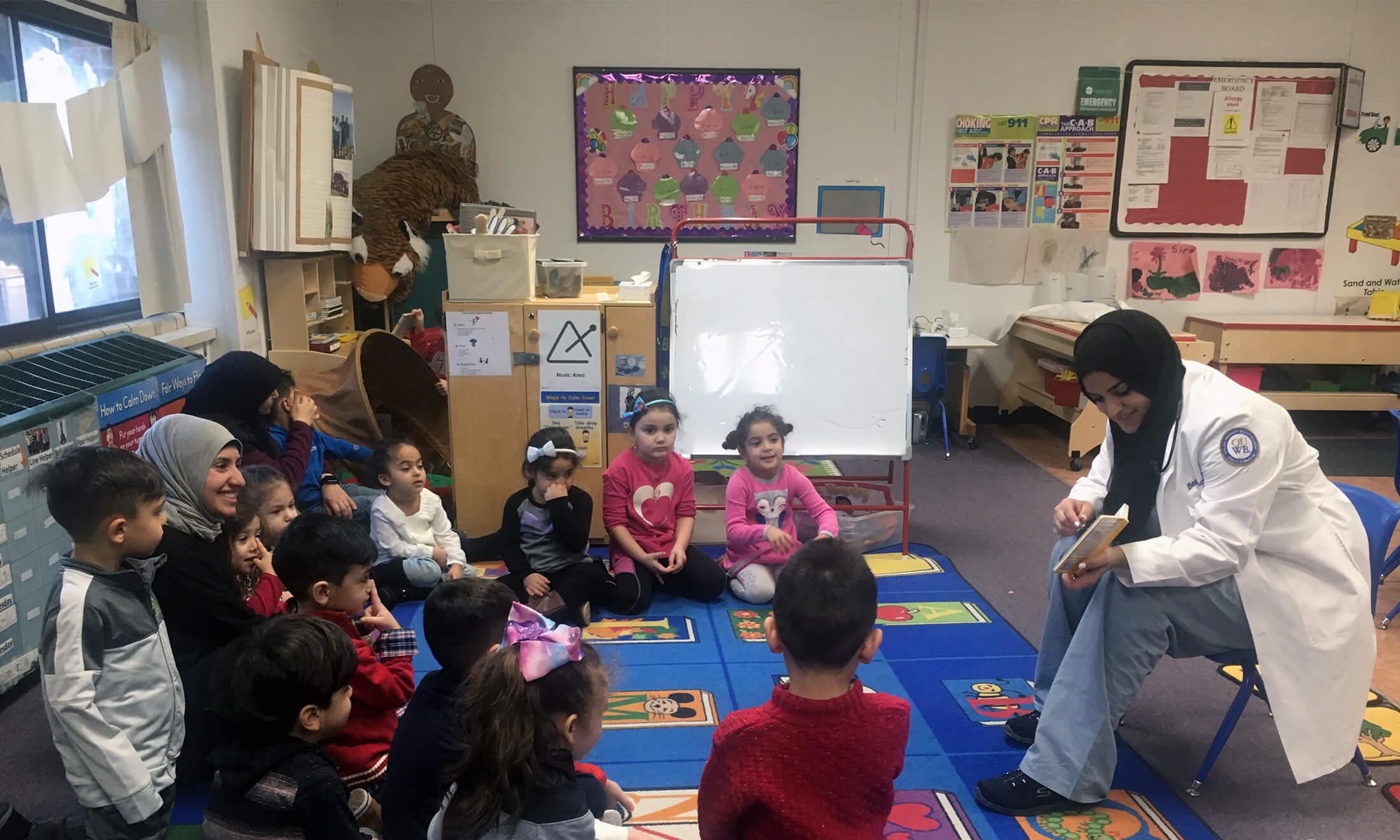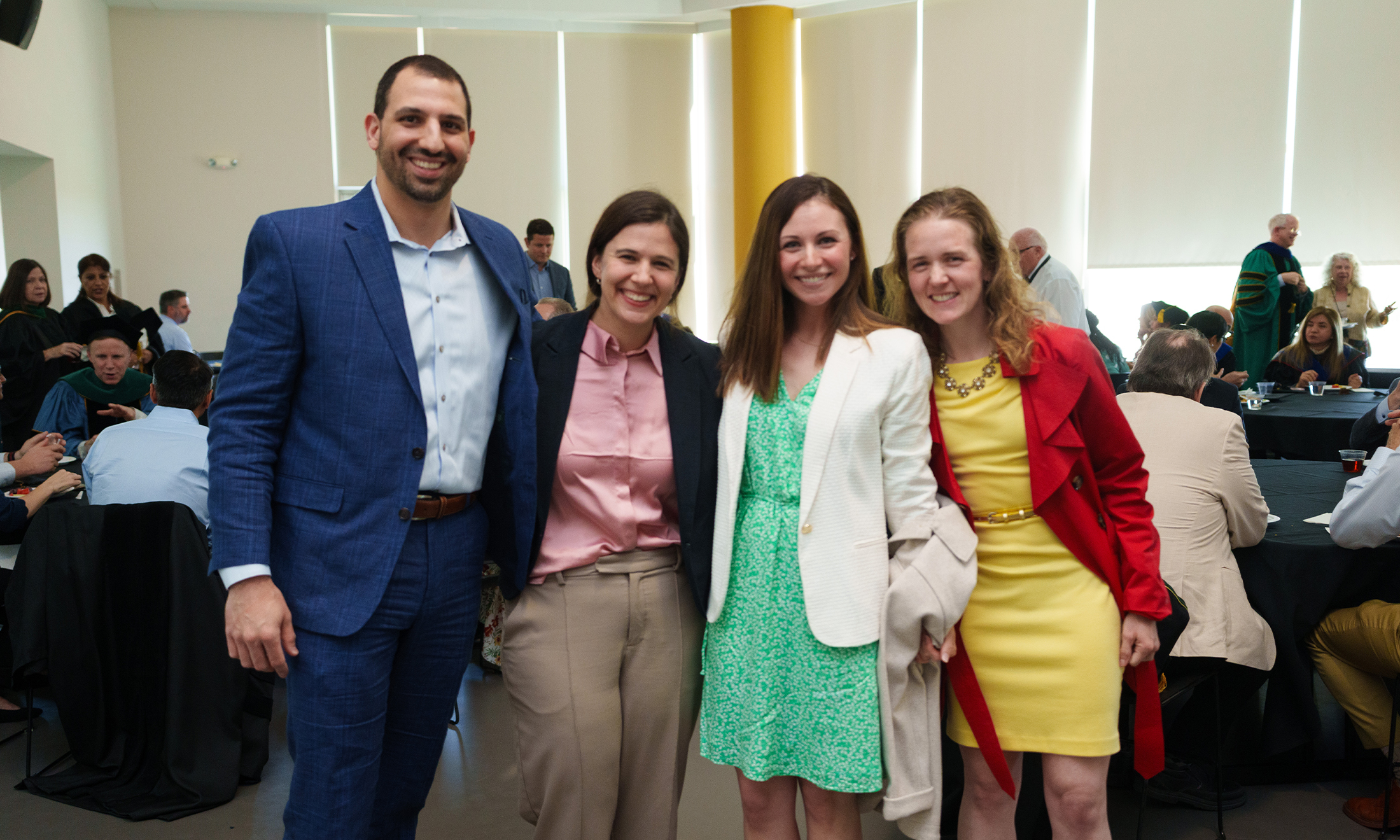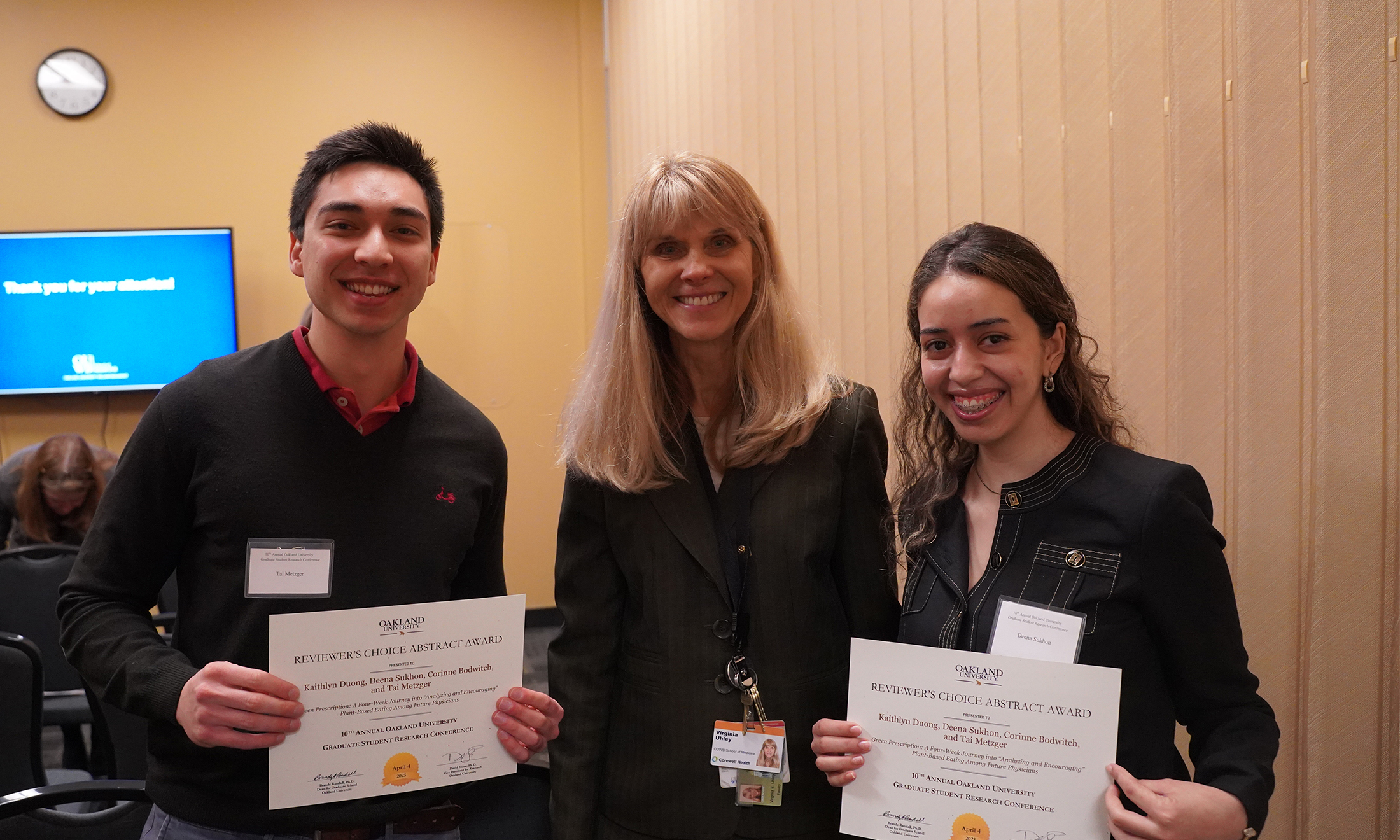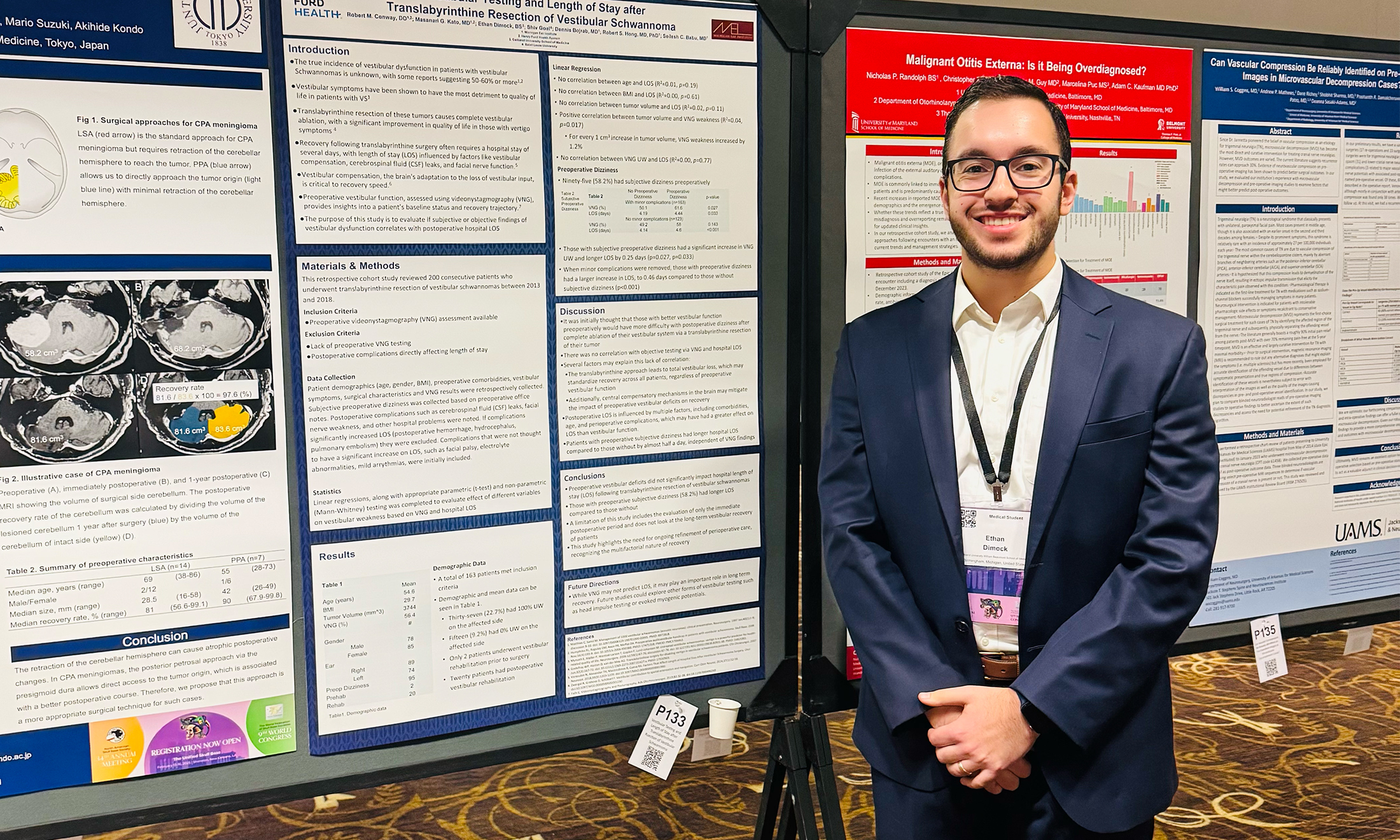‘This is my passion’
OUWB Class of 2019 alumnae serves as chief resident in Family Medicine at Beaumont, Troy
Going above and beyond to help others has always been important for Jamilah Alhashidi, M.D. — an approach that she practices daily as a chief resident in family medicine.
The OUWB alumnae (Class of 2019) says she practices it when spending hours on the phone with a distraught patient and when showing grace to patients who are late due to transportation issues.
She also draws on this ability when helping patients who struggle to make ends meet find cheaper prescription options, or need help understanding the importance of proper nutrition.
The list of ways Alhashidi goes above and beyond is almost endless — and she says it’s all for one primary reason.
“I went into medicine to help people and that’s something I never, ever want to forget,” says Alhashidi, who is in residency is at Beaumont Hospital, Troy.
‘Get outside of the classroom’
Alhashidi’s parents came to the U.S. not long after she was born. The family lived in California until Alhashidi’s fifth-grade year, when they relocated to Detroit. From that age until graduation, she attended Universal Academy, a PreK-12 charter school in southeast Detroit. She graduated as valedictorian of her class of 28.
Alhashidi would go on to earn two undergraduate degrees from University of Michigan-Dearborn, one in biology/biological sciences and another in psychology. She began OUWB in 2015.
Through it all, Alhashidi retained a commitment to making time for others.
“I remember people telling me in undergrad that I wasn’t going to get into med school because I needed to focus more on my education,” she says.
“I was just like ‘No, I’m doing this because this is my passion.’”
Alhashidi is so passionate about helping others that she says if she only had to go to class, she likely would have dropped out of school.
“Honestly, I love education…(and) I love medicine, but I don’t want it to be my only thing,” she says.
In high school, Alhashidi was president of the National Honor Society. She led many community outreach initiatives with organizations like Reach Out and Read and Capuchin Soup Kitchen.
Her commitment to others blossomed further at UM-Dearborn. She was involved in Phi Delta Epsilon, a medical fraternity that, in part, supports Children’s Miracle Network; Autism Speaks U, an organization that raises money for Autism research and awareness; Alliance for Disability Awareness, a group that raises awareness about various disabilities; and Elder Alliance.
“No matter how many books you read, no matter how many lectures you go to, (service) provides interactions with different people from different backgrounds who bring all kinds of different experiences to the table…you really, really have to get outside of the classroom,” she says.
Alhashidi says one reason she gives so much of herself is that giving back and charity are especially important to those who are Muslim.
Another reason, Alhashidi says, is that she understands what it’s like to come from a low socioeconomic background and has seen the difference another person can make for those who need help. By example, Alhashidi points to those who helped her parents — who didn’t speak any English when they emigrated to the U.S. — with obtaining various types of assistance.
“I’ve always taken the approach that if I can’t provide financial help to someone, I can provide my time,” she says. “We all have a job to do in the community, to give back.”
‘OUWB definitely prepared me’
Given her commitment to service, Alhashidi says OUWB was a natural fit for her.
She says she was particularly drawn to the school’s commitment to community.
At OUWB, she was involved in, among other things, the Pediatric Interest Group, American Medical Student Association, Muslim Medical Student Association, and starting the school’s chapter of the National Arab American Medical Association.
| More from OUWB |
|
OUWB department chair leads 10th mission to Zambia AAMC names OUWB’s Patino ‘outstanding reviewer’ OUWB faculty on ‘personal mission’ to fight misinformation in health care |
“What really makes OUWB stand apart is its community and commitment to making sure everyone has a place within the school…you’re not just another student,” says Alhashidi. “They want you to be an active member and engaged.”
She says OUWB “definitely prepared me” to be a physician, starting with the curriculum of the first and second years followed by the learning opportunities in various clinical settings.
“With the OUWB and Beaumont connection, my third and fourth years were phenomenal — every rotation I had was rigorous in the sense that I was learning a lot as an active and vital member of a team,” she says. “Everyone at Beaumont was so kind.”
The various experiences also helped her decide to go into family medicine after consideration of other specialties like pediatrics and emergency medicine.
“The thing that tipped me toward family medicine was that I wanted continuity of care,” she says. “I wanted to get to know my patients as kids, graduating high school, even eventually (as adults) having their own families. That really appealed to me.”
Looking ahead
Alhashidi is in the middle of a one-year term as chief resident. She was selected by her peers, the other residents in family medicine.
“It’s nice because it means that your peers are comfortable with talking with you and addressing the issues they have…it’s a great feeling,” says Alhashidi.
A typical day begins in a precepting room, where patient charts are reviewed with attendings. Between the meeting and noon, Alhashidi checks in on patients. At noon, it’s time for lunch and noon lectures, which vary by topic and guest speaker. The afternoon is dedicated to more time with patients. Alhashidi will wrap up her work day by going through her emails, returning phone calls, finishing notes, and so on.
Concurrently, Alhashidi is looking ahead with plans to continue working with med students, volunteer in the community, and find a post-residency position.
And she is doing it all with that same primary goal she’s always had in mind.
“I want to continue to work with an underserved populations … to be able to give back to the community that I once belonged,” she says.
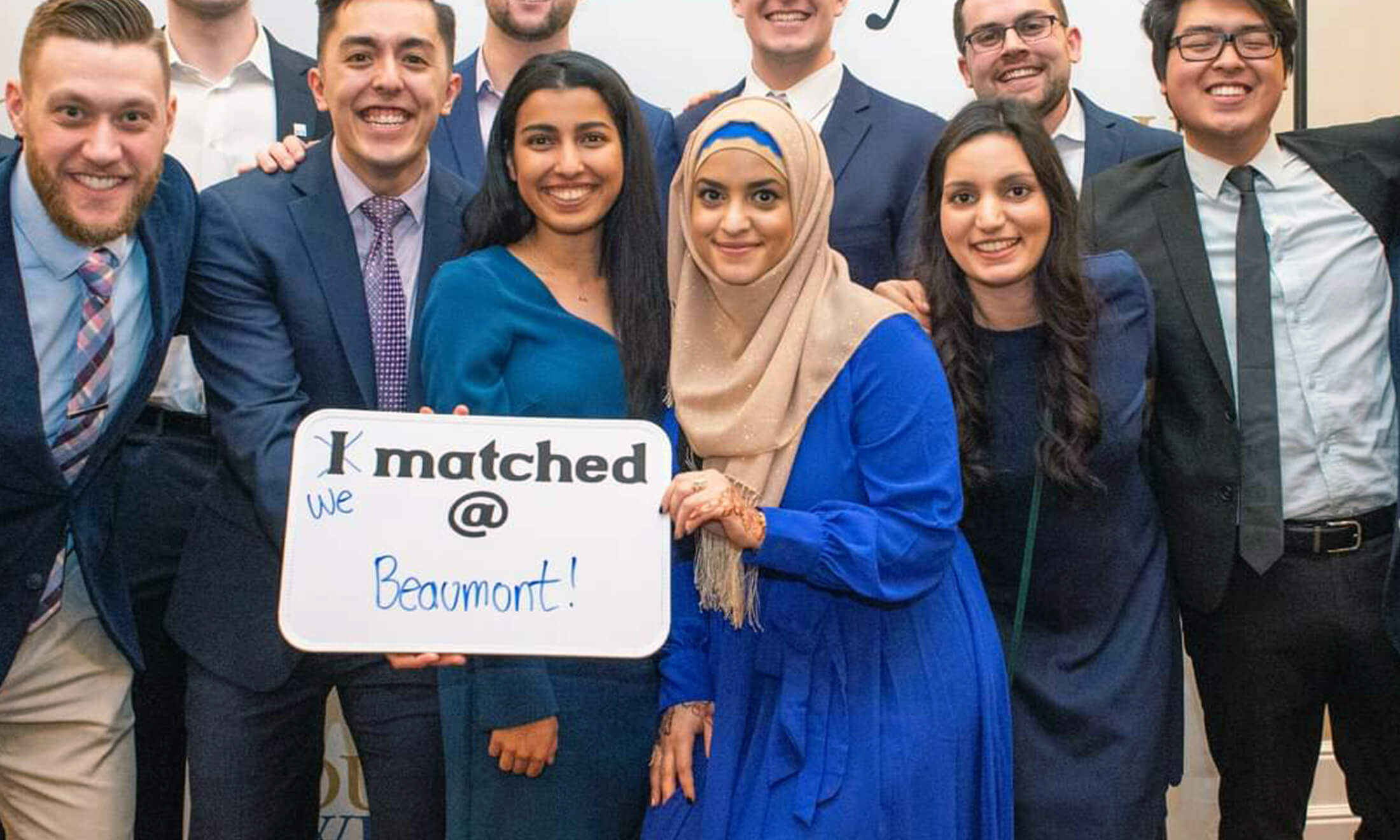
 December 21, 2021
December 21, 2021
 By Andrew Dietderich
By Andrew Dietderich